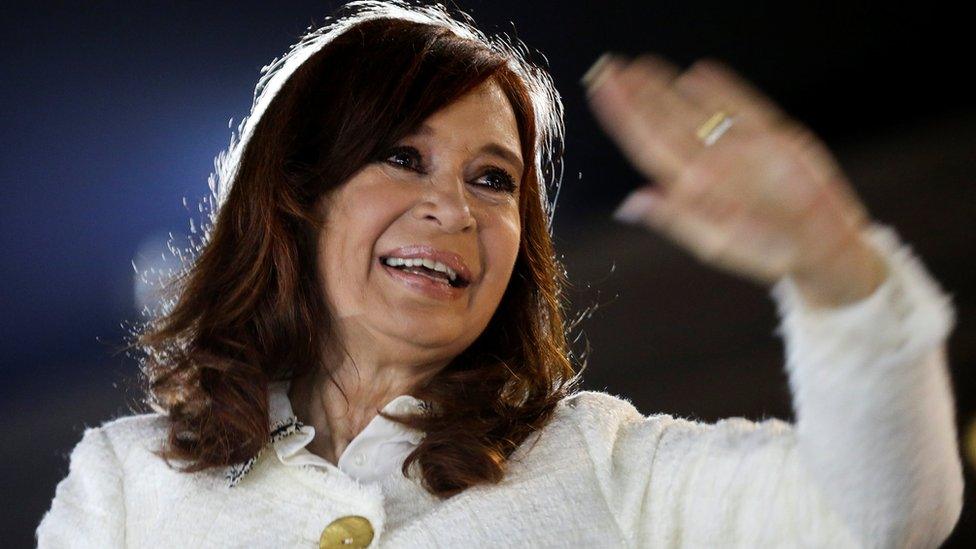Alberto Fernández: Argentina's strategist turned president
- Published
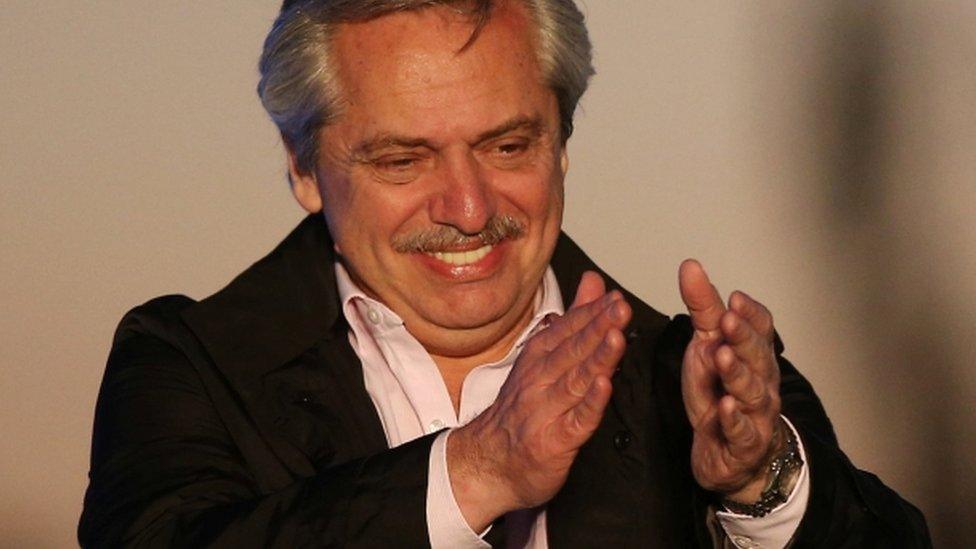
Mr Fernández surprised many with the scale of his victory in primaries in August
For a career politician with little charisma, Alberto Fernández has caused quite a stir since he first appeared in the limelight of Argentine politics less than six months ago.
The former campaign strategist began his bid for the presidency in May - something of a surprise as former president Cristina Fernández de Kirchner (no relation) had been widely tipped to be the centre-left opposition coalition's candidate for the top office.
She announced in a video posted on social media at the time that she had decided to stand as his running mate.
But Mr Fernández really came into his own in August when he trounced incumbent President Mauricio Macri by nearly 15 percentage points in primary elections, a compulsory vote for all electors which is seen is a dry-run for the presidency.
This victory, defying all predictions, set him up as clear favourite in Sunday's presidential vote.
While Mr Fernández served under both Ms Fernández and her husband and predecessor in office, Néstor Kirchner, he does not have the same name recognition as his former bosses.
A law graduate and sometime rock guitarist, 60-year-old Mr Fernández first became involved in politics in the early 1980s, in the dying days of the military dictatorship.
For most of his political life he has been a member of the Justicialist Party (PJ), which follows the principles of the populist former president Juan Perón and is now part of the main centre-left opposition coalition, Frente de Todos.
He headed Mr Kirchner's election campaign in 2003, and his wife's in 2007, in both cases going on to become head of the cabinet of ministers.
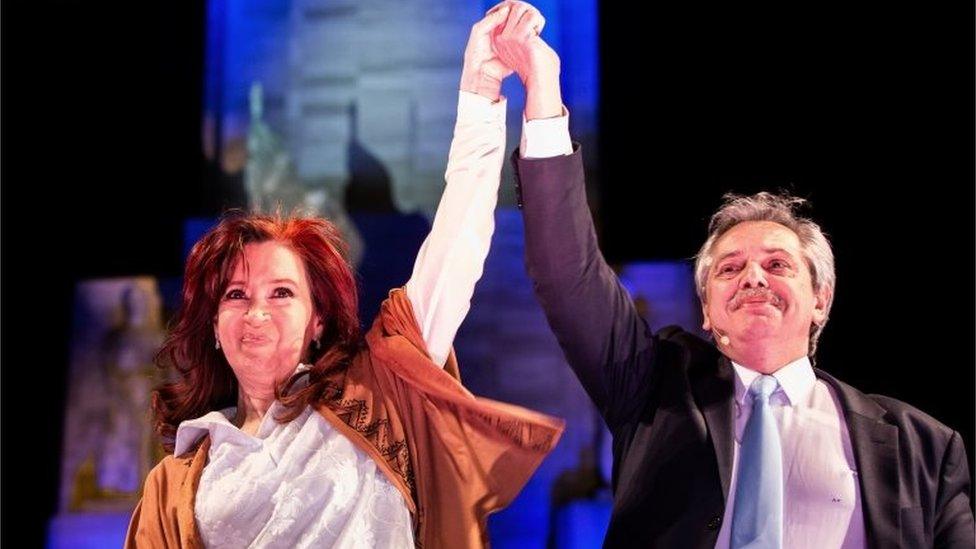
He has had a rocky relationship with his namesake Cristina Fernández
He resigned in 2008 after an acrimonious falling out with Ms Fernández, opposing such policies as attempts to politicise the judiciary and curb the influence of a powerful opposition media group.
After leaving the administration, he became a vocal critic of his former boss but he later dismissed their disagreements as "what happens to many Argentines, that you fight among friends because you disagree over politics".
Analysts say that he was seen as a brake on the more polarising policies of Ms Fernández. As such he would seem to have attracted votes from those on the left and elsewhere who feel unease about his running mate's populism, while at the same time benefiting from her appeal.
As Mr Fernández told the Pagina 12 website (in Spanish) in February, external: "With Cristina it's not enough but without her it's not possible."
In other words his closeness to the Kirchners, but also his distance from them, both seem to have helped him to win votes.
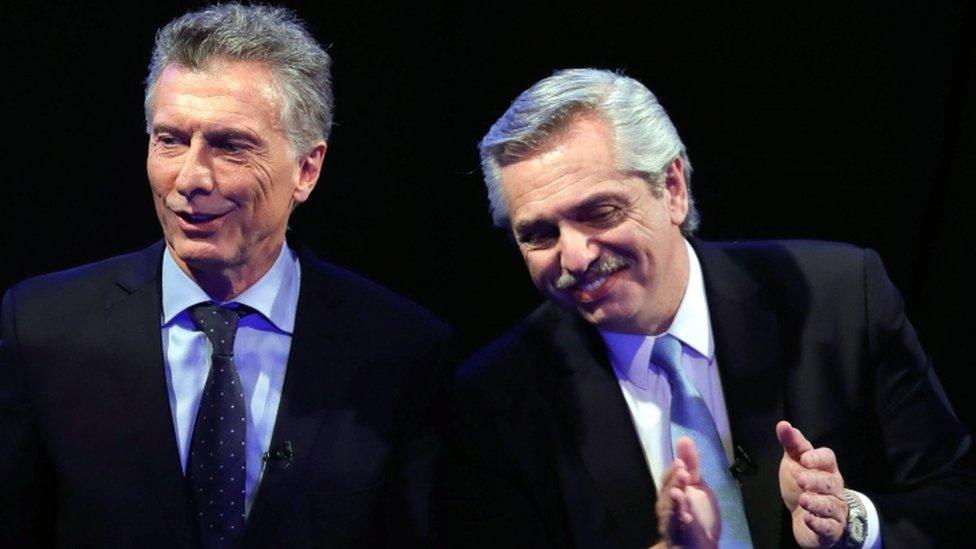
Mr Fernández (R) sparred with Mr Macri (L) in two presidential debates
The president-elect is also seen as a unifying force, bringing together pro- and anti-Peronist forces in Frente de Todos, a broad front focused on removing President Macri from office.
He faces an country demoralised by deep recession, high inflation and biting austerity, with whom his pragmatic, interventionist economic policies are clearly resonating.
- Published14 August 2019
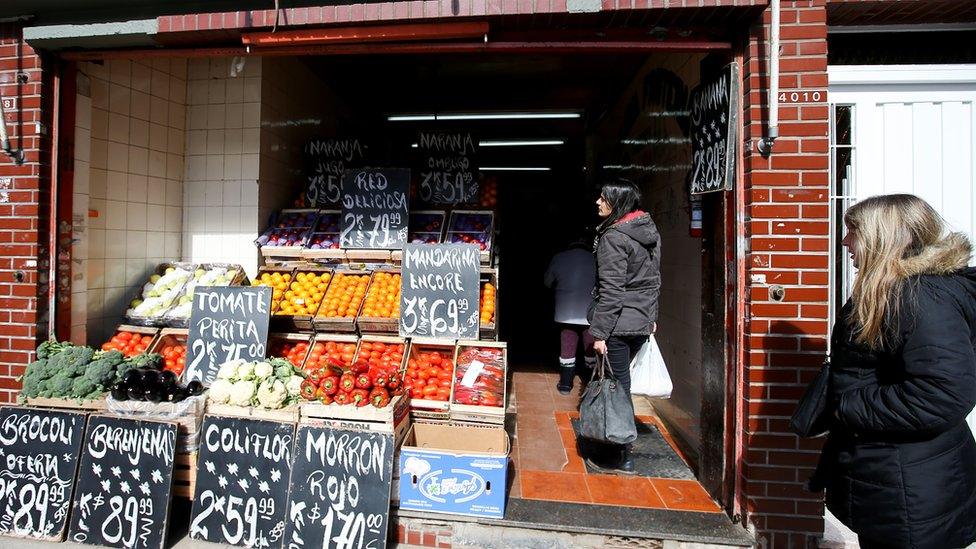
- Published12 August 2019
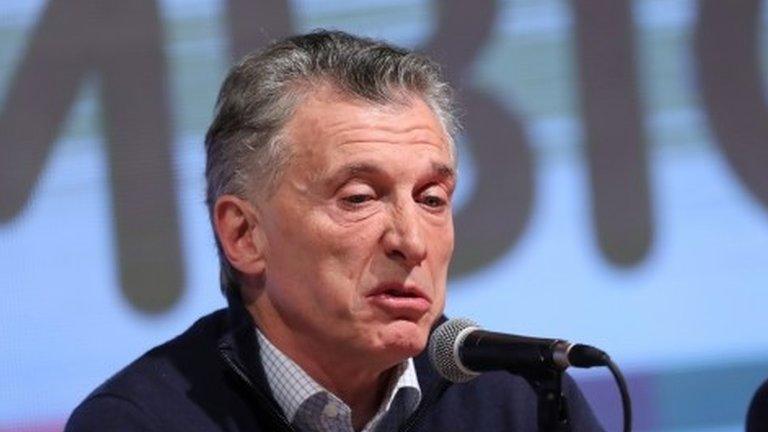
- Published30 August 2018
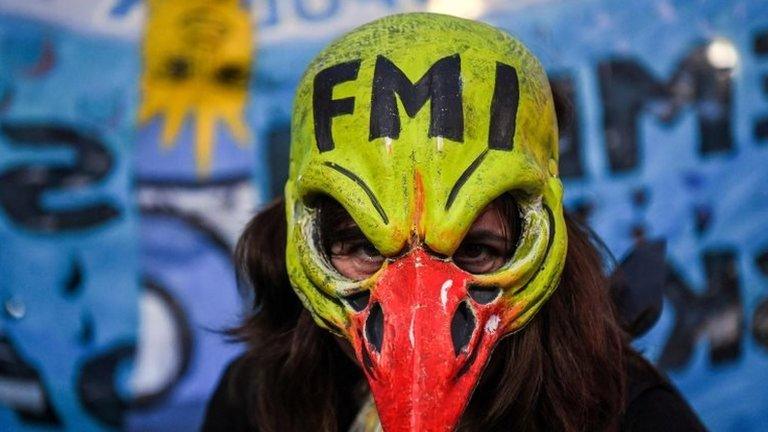
- Published9 September 2018

- Published13 August 2019
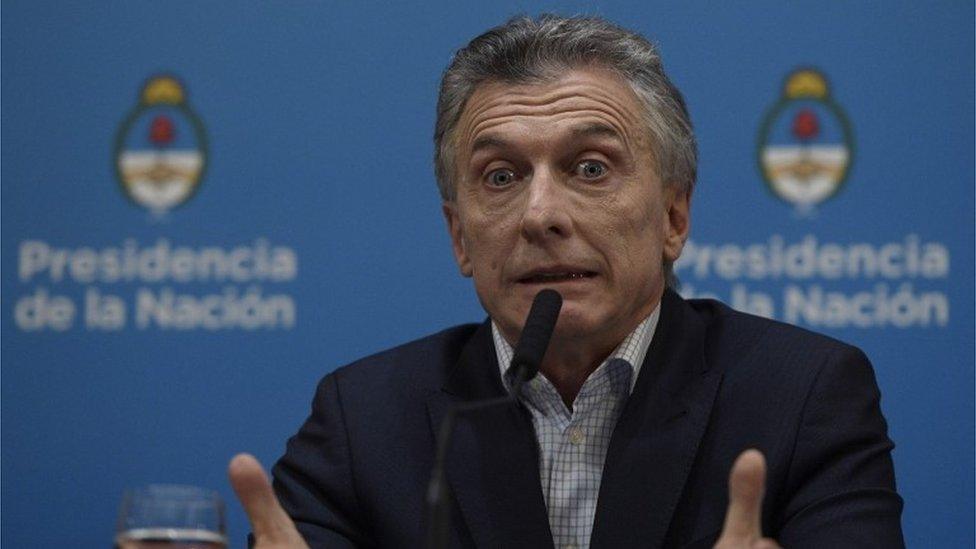
- Published7 December 2022
